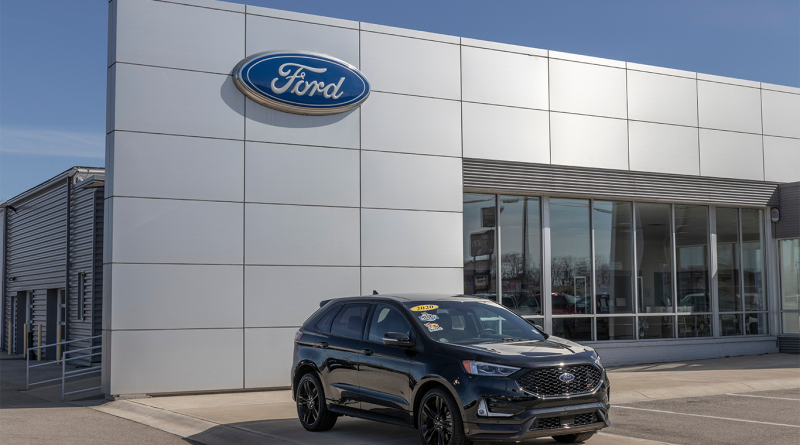Ford Secures Historic $9.6 Billion Loan for EV Battery Manufacturing
The US Department of Energy (DOE) has approved a $9.6 billion loan to BlueOval SK, a joint venture between Ford Motor Company and SK On, marking the largest-ever disbursement from the Advanced Technology Vehicles Manufacturing (ATVM) program. As part of the Biden administration’s strategy to foster energy independence and reduce greenhouse gas emissions, this initiative bolsters US leadership in the rapidly evolving EV industry.
Details of the loan
The $9.6 billion loan represents a major milestone for both Ford and the US government in their joint effort to achieve net-zero emissions by 2050. Administered through the DOE’s ATVM program, this funding underscores the government’s commitment to supporting private-sector innovation in sustainable transportation.
BlueOval SK’s facilities are projected to collectively produce over 120 gigawatt hours of battery capacity annually, significantly boosting the availability of EV batteries in the US The investment is critical to scaling electric vehicle manufacturing as automakers face mounting pressure to meet increasing consumer demand and regulatory requirements.
Facilities and employment impact
The loan will finance the construction of three cutting-edge electric vehicle (EV) battery plants—one in Stanton, Tennessee, and two in Glendale, Kentucky. These facilities are designed to position the US as a leader in EV battery production, with an anticipated combined output exceeding 120 gigawatt hours annually.
The Tennessee plant will be the first to begin production in 2025, followed by the Kentucky facilities later that year. The combined capacity of these sites is integral to Ford’s ambitious goal of manufacturing 2 million electric vehicles annually by the end of 2026.
The economic impact of these projects is substantial. During construction, approximately 5,000 jobs will be created, while 7,500 permanent positions will become available once the plants are operational.
Strategic implications for Ford and the US
The loan is a cornerstone of Ford’s electric vehicle strategy. By partnering with SK On, Ford aims to secure a steady supply of advanced batteries, which are critical for achieving its production targets.
On a national scale, this project aligns closely with the Biden administration’s commitment to transitioning the country toward a clean energy economy. The increased domestic production capacity supports efforts to reduce reliance on imported materials, particularly from nations like China, which presently controls a significant share of the global battery market.
Moreover, the investment highlights the growing importance of public-private partnerships in driving technological innovation and sustainability. The successful execution of these plans could serve as a blueprint for similar projects in the future.
Broader economic and environmental impact
The $9.6 billion loan extends beyond bolstering Ford’s electric vehicle production. It represents a significant milestone in the US’s journey toward energy independence and environmental sustainability.
Environmentally, the project is poised to support widespread EV adoption, a critical step in reducing greenhouse gas emissions. Electric vehicles, powered by clean energy sources, are key to meeting the Biden administration’s net-zero emissions target by 2050. The new BlueOval SK plants will play a pivotal role in ensuring that sufficient batteries are available to meet these ambitious goals.
Economically, the initiative is expected to invigorate local communities in Tennessee and Kentucky. From construction jobs to permanent employment opportunities, the ripple effects will benefit thousands of families. Additionally, the advanced technologies employed in these facilities are likely to attract further investments in related industries, establishing a thriving ecosystem around EV production.
The US Department of Energy’s historic $9.6 billion loan to BlueOval SK signifies more than just an investment in electric vehicle batteries—it is a bet on the future of the American auto industry. As automakers pivot toward sustainable technologies, projects like these underscore the importance of federal support in accelerating the transition. For Ford, the loan provides a competitive edge, enabling the company to meet its ambitious EV goals while solidifying its leadership in the evolving market. For the nation, it’s a step toward building a more resilient economy powered by clean energy.
Sources:
To keep up-to-date with our latest manufacturing news, subscribe to our newsletter today.
